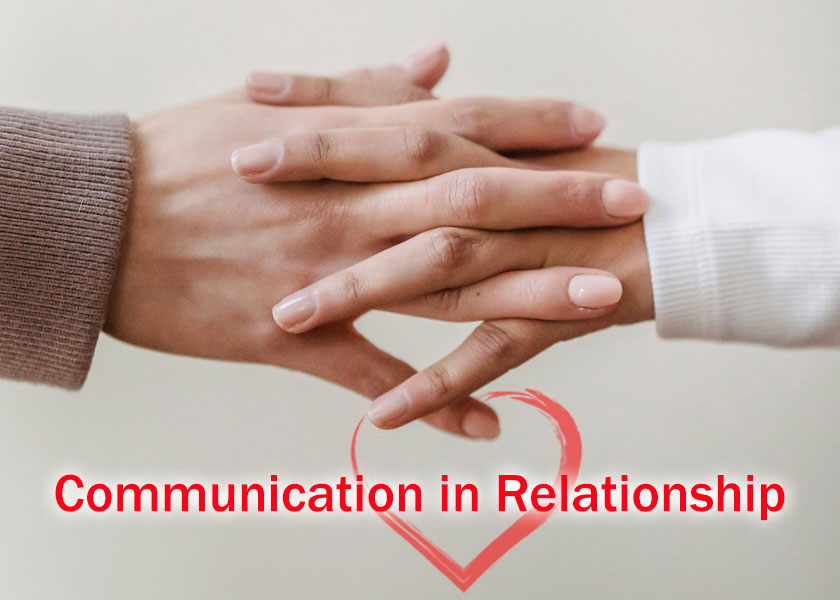Let us first know what love really is? After that we will learn more about love. Love is a complex emotion characterized by intimacy, passion, and commitment, involving care, closeness, protectiveness, attraction, affection, and trust.

It can lead to positive emotions like happiness, excitement, and life satisfaction, but can also result in negative ones like jealousy and stress. Different types of love include friendship, infatuation, passionate love, compassionate love, unrequited love, and twin flame.
Contents List
What Is Love ?
1. Love is a set of emotions and behaviours characterized by intimacy, passion, and commitment.
2. It involves care, closeness, protectiveness, attraction, affection, and trust.
3. Love can vary in intensity and can change over time.
4. It is associated with a range of positive emotions, including happiness, excitement, life satisfaction, and euphoria, but it can also result in negative emotions such as jealousy and stress.
5. Researchers have made distinctions between feelings of liking and loving another person.
6. According to psychologist Zick Rubin, romantic love is made up of three elements: attachment, caring, and intimacy.
7. Not all forms of love are the same, and psychologists have identified a number of different types of love that people may experience.
8. These types of love include friendship, infatuation, passionate love, compassionate/companionate love, unrequited love, and twin flame.
Please note that Love is a complex and multifaceted emotion, and it can be experienced and expressed differently by different individuals.
It is a topic that has been widely studied, and researchers continue to explore its various aspects and implications.
Difference between love and infatuation:

Love and infatuation are often confused, but they are distinct emotional states. Infatuation is characterized by intense emotions and attraction, often short-lived and based on idealized perceptions.
1. It can lead to euphoria, lust, and shallowness, with symptoms like increased heart rate, loss of appetite, and difficulty sleeping.
2. Love, on the other hand, is a deeper, more enduring emotional connection that involves care, closeness, protectiveness, attraction, affection, and trust.
3. It is associated with positive emotions like happiness, excitement, and euphoria, and is built on mutual understanding, open communication, honesty, respect, and devotion.
Differences between love and infatuation.
tenured: Infatuation is frequently passionate but fleeting, whereas love is more steady and long-lasting.
Emotional breadth: Infatuation is generally built on idealised notions and extreme desire, whereas love entails a deeper emotional connection and a sense of attachment.
The other person’s perception: Infatuation may hinder you from recognising the other person’s defects or limitations, whereas love is based on a more realistic knowledge of the other person.
Dynamics of relationships: Characterise of love open communication, honesty, respect, and dedication. whereas infatuation may be more focused on the romantic dream and physical attraction.
It’s vital to keep in mind that, as the relationship progresses and both parties get to know one another better, infatuation can occasionally turn into love. People may make better judgements regarding their relationships and mental health if they are aware of the distinctions between love and infatuation.
Please remember that love and infatuation are complicated emotions, and that different people will feel them in different ways. To create a happy and satisfying relationship, it’s always crucial to examine your own emotions and be truthful with your partner.
How can I know if someone loves me?
There is no clear-cut response to this query, since different people may demonstrate their love in various ways. However, there are a few typical indications of love that you might watch for.

1. They listen carefully to what you have to say and show interest in your way of thinking.
2. They only focus on you and pay no attention to other potential partners.
3. After they get near to you physically, you feel satisfied and connected.
4. They truly want to see you happy and healthy, and they try to make your life easier.
5. They respect your originality and make no effort to change or sway you.
6. They are committed to you and constantly keep their promises.
Of course, these are not the only indications of someone’s love for you; there are other emotions and actions you may encounter. The greatest approach to find out whether someone loves you is to ask them directly and be honest with them about your relationship, in the end.
How can I show someone that I love them?
You may show someone you love them in a variety of ways, depending on their tastes and personality, Some individuals enjoy hearing words of encouragement, others enjoy receiving presents, other others enjoy spending quality time together, still others enjoy performing acts of service, and still others enjoy physical touch.

These are referred to as the five love languages, and they can help you understand how individuals express and accept love.
Discovering someone’s love language might help you express your feelings for them in the right way. For instance, you may thank them, encourage them, and express your gratitude if they value words of affirmation. You may surprise them with something thoughtful, significant, or imaginative if they enjoy getting gifts.
If they appreciate spending time with you, arrange a romantic outing, a fun activity, or a relaxing evening at home. You can be kind to them by assisting them with a chore, making them a meal, or mending something for them if they appreciate acts of service. You can give them a hug, kiss, or hold their hand if they need physical contact.
Of course, you are not required to stick to just one love language. As long as they are suitable and courteous, you are free to mix and combine different ways to express your love.
The most crucial thing is to operate with honesty, care, and consistency. The act of demonstrating your love for someone is a constant process that takes work and dedication.
Best 5 Love languages
Dr. Gary Chapman, a marriage therapist and author of the book “The 5 Love Languages,” created the idea of the five different ways to express love. They outline five different ways that partners can give and receive love. These are:
Positive statements: Verbal expressions of affection such as praise or admiration are considered to be part of the love language of words of affirmation. People who have this love language enjoy hearing “I love you” frequently, and they flourish when others support them.
Valuable time : This type of love language is about giving someone your whole attention. If you are present and focused on them when you are together, those who utilise this love language will feel cherished. This entails putting the phone down, shutting down the computer, making eye contact, and paying attention.
Physical contact : Whether it be sexual or not, this love language is about bonding via healthy physical contact. When a partner gives them a hug, a kiss, holds their hand, or touches their arm, the person with this love language feels appreciated. They only want to be physically near to their lover.
Service acts: This type of love is expressed by unselfish deeds and thoughtful actions that simplify someone’s life. People who use this love language value assistance with tasks, running errands, and problem-solving from their partners. They frequently help people and show generosity to them.
Getting presents: This type of love is shown via material gifts and considerate gestures. People who use this love language appreciate receiving thoughtful presents that demonstrate how much their partner values and knows them. Outside of special events, they also like to gift-surprise their partners.
Knowing and using each other’s love languages may make you both feel more loved and valued. These five love languages may be used to express love to friends, family, and other people in your life.
Improve communication in a relationship.
Any relationship needs good communication since it enables you to express your requirements, wants, and feelings to your spouse. Additionally, talking to your spouse may help you understand each other better, work out problems, and develop closeness and trust.
But successful communication is not always simple, and many individuals have trouble listening intently to their partners or expressing themselves. Here are some suggestions for enhancing.
Here are the top 10 tips to improve communication in a relationship. Which will be useful in your love life.
1. When and where to discuss should be considered. When you or your partner are exhausted, agitated, hungry, or otherwise disoriented, refrain from discussing delicate subjects. Find an area that is peaceful and quiet so you may talk without being disturbed or distracted.
2. Make use of “I” expressions and emotions. Focus on your own thoughts and needs rather than blaming, criticising, or condemning your spouse. Instead of stating, “You never listen to me,” say, “I’m hurt when you don’t listen to what I’m saying.” You may prevent making your partner defensive or furious by inviting them to empathise with you.
3. Actively and carefully listen. Maintain eye contact, nod, and make noises of agreement when your spouse is speaking to demonstrate that you are paying attention. Do not interrupt, pass judgement, or give counsel until requested.
Try to comprehend their viewpoint and emotions, then summarise what you heard in your own words. You may remark, “So what you’re saying is…” or “It sounds like you feel…” as an illustration. This might assist you in resolving any misconceptions and demonstrating your concern for your relationship.
4. Verify your partner’s ideas and emotions. You may appreciate and acknowledge your partner’s point of view even if you don’t agree with it. Such such as “That makes sense to me” and “I can see why you feel that way” are acceptable. Validation may lessen your partner’s aggravation or resentment by making them feel heard and understood.
5. Pose queries and exhibit inquiry. You may find out more about your partner’s feelings and thoughts by asking open-ended inquiries. You may inquire, “What do you think about…?” or “How do you feel about…?,” for instance. By demonstrating your interest in your partner and their world, you may deepen your relationship and increase your intimacy with them.
6. Set compromise and agreement as your objectives. Don’t try to win the argument or convince your partner that you are correct while you are having a disagreement. Instead, make an effort to come up with a solution that meets your requirements and preferences while also working for both of you. Ask your partner what they need from you to end the conflict, and be prepared to make sacrifices and modifications.
7. Set boundaries and expectations out front. You and your partner may prevent misunderstandings and arguments by being clear about your expectations and boundaries. You may express to your spouse, for instance, what you are willing and unable to accomplish, as well as what you are both comfortable and uncomfortable with. You may respect your partner’s boundaries and expectations by asking them about them.
8. Leave your companion notes. An uncomplicated message from you might occasionally make your partner’s day and let them know you are thinking of them.
You may write a message on their windscreen, in their lunch bag or under their pillow. You can include sentiments like “I love you,” “You are amazing,” or “I can’t wait to see you tonight” in your writing.
9. Check in frequently during the day. Maintaining a strong and supportive relationship may be made easier by staying in touch with your partner throughout the day.
To check on them, talk about your experiences, or make plans, you may text, call, or video chat with them. To convey your emotions and humour, you may also use emojis, gifs, or memes.
10. Put the golden rule to use. Remember to treat your partner the way you want to be treated. Be supportive, honest, empathetic, and kind. Do not talk or act in a way that would be disrespectful to, or hurtful to your partner.
Keep in mind that you are both striving for a happy and healthy relationship and that your spouse is your teammate, not your adversary.
These are some relationship communication improvement techniques, but you may also come up with your own strategies based on your personality and communication preferences. The most crucial thing is to be truthful, reliable, and polite. Keep in mind that communication is a constant process that calls for effort and focus.




